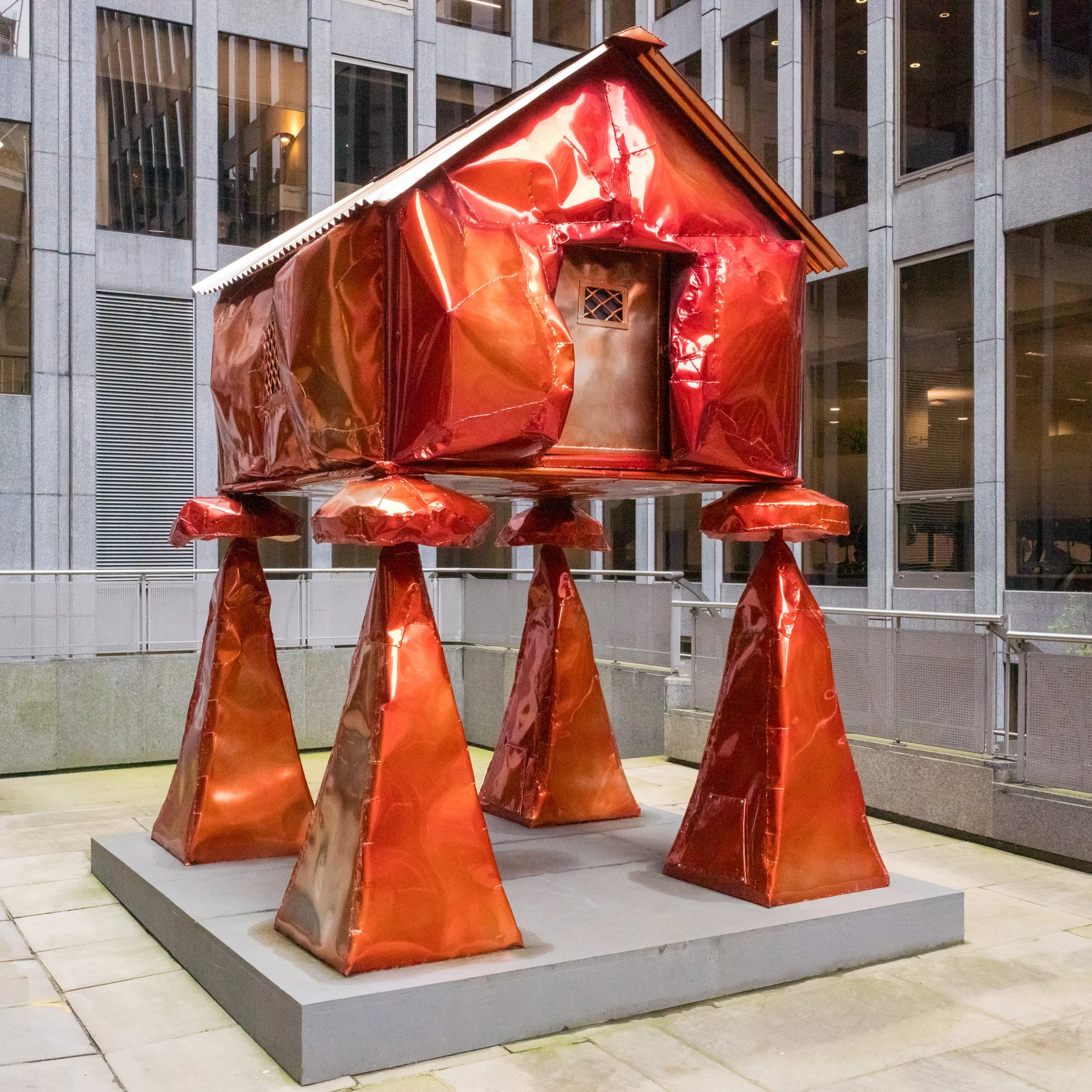The Granary (2021) by Jesse Pollock (b. 1993) stands as a life-sized sculpture depicting a traditional English grain store, reminiscent of those still in use in countryside locales like the artist’s hometown in Faversham, Kent. Symbolizing agrarian and pastoral life, granaries are emblematic structures of rural existence.
Towering at an unusual height, The Granary is finished in pearlescent candy orange, a deliberate choice reflecting a nostalgic yearning for an idealized past. However, despite its romantic allure, the sculpture also embodies a sense of weariness and frustration. It serves as a stark reminder of the harsh realities of material deprivation, societal discord, class disparity, and racial prejudice.
Moreover, The Granary confronts the fears and uncertainties surrounding contemporary crises affecting rural life. It calls attention to the urgent need to address these challenges while challenging the entrenched narratives and rhetoric that shape perceptions of national identity, heritage, and our collective role within society.


